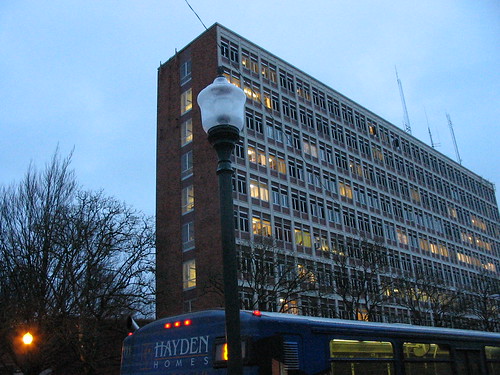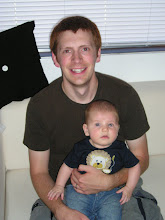By far the most exciting event of the week is that I was offered a Graduate Teaching Fellowship. Along with a stipend, I also receive a tuition waiver. I can also sign up for health insurance for me and the family, which is a better deal than at my last job. Another great aspect of the GTF is that I have an office on campus. I’m really glad I don’t have to lug all of my books to campus every day especially during the rain. This quarter my only responsibility is grading for Intermediate Macroeconomics.

Expectations of the future have an impact on economic decisions. Expectations of our future income, expectations of future prices of goods, as well as other expectations all have an impact on the demand for goods. When expectations change, demand will change and when expectations change again, demand will also change again. An interesting principle can be demonstrated here. Up until the beginning of April (when schools usually make offers) we expected to receive funding for school. After April our expectations changed and we accepted the fact that we would not. When our expectations about funding changed once again this past week our ideas about our current and future consumption changed once again. Although we would be in the same financial situation as if we had been guaranteed this GTF in April I do not think that our demand for goods would be quite the same. Just through changes in our expectations we arrived at a different demand for goods although our expectations are where they were originally. I find the role of expectations in our decisions and their role in macroeconomics very intriguing. It is something I plan to study much more and part of the reason why I chose Oregon over other schools.
As an example of expectations think of what happens when you expect a recession. Thinking there are hard times ahead you would cut back on your spending now and try to have more savings in case you lose your job. This would lead to a loss of sales and profits by companies who would respond to this by cutting back production and a reduction in employment in the form of lay offs or hour reduction. Of course, the loss of income by those experiencing a loss of employment will further reduce spending, but losses by companies and slightly increasing rate of unemployment will further cement your expectations about an impending recession and lead to even more precautionary measures by you and the whole thing would start over again. Through this example you can see that just thinking there is a recession coming can actually cause a recession, though I doubt there has ever been or ever will be a recession where this is the main cause, I believe it can be a contributing factor.

 functoruser.">
functoruser.">











